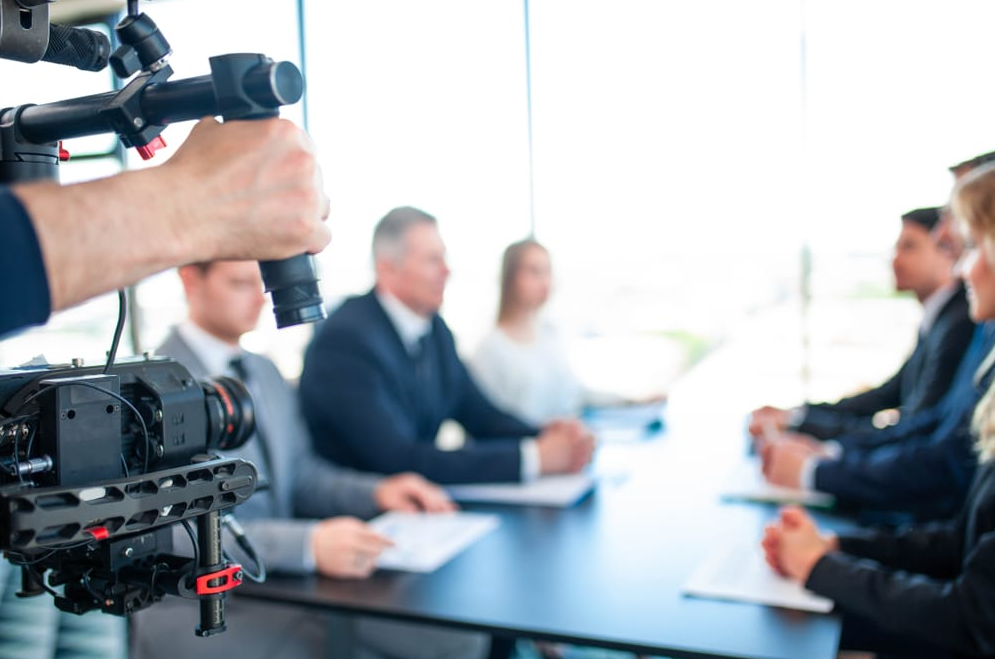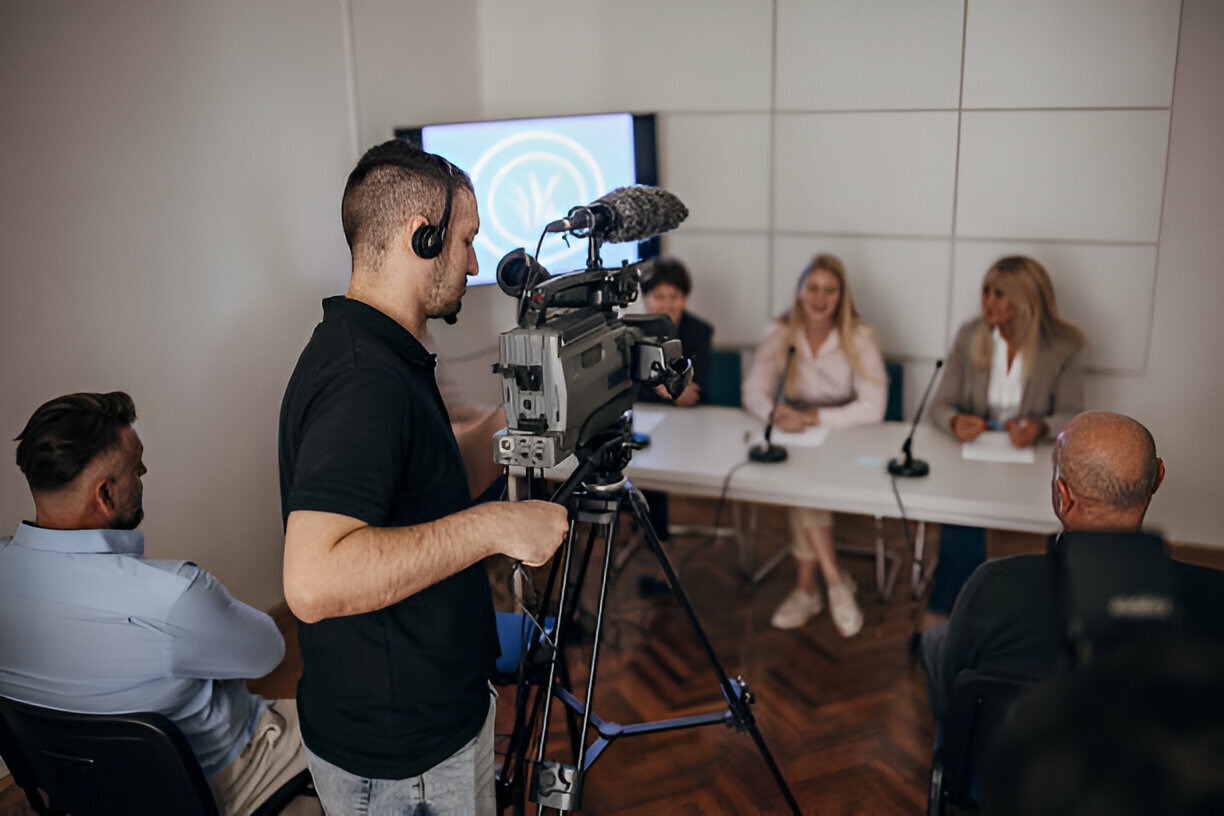Checking Out the Various Sorts Of Legal Videographers and Their One-of-a-kind Offerings
Legal videographers play an essential duty in the judicial procedure, each concentrating on distinctive facets of court room documentation. Their competence ranges from recording witness testimonies to improving test discussions. Recognizing the varied offerings of these professionals can brighten their contributions to legal proceedings. As the intricacies of modern-day litigation expand, the relevance of their duties ends up being progressively noticeable. What certain features do these videographers serve, and exactly how do they impact the results of situations?
Understanding Legal Videography
Legal videography plays a vital role in the judicial procedure, providing visual documents that can improve the quality and precision of legal procedures. This customized field includes capturing video clip recordings of different legal occasions, such as trials, hearings, and various other significant minutes within the legal system. Legal videographers utilize innovative devices and methods to ensure high-quality video, which can serve as crucial proof during litigation.Understanding legal videography requires acknowledging its significance in communicating information in a visual style. The recorded video footage can aid juries and judges much better recognize the context and subtleties of statements and occasions, potentially influencing verdicts. In addition, legal videographers should comply with strict standards and criteria to maintain the integrity of the recordings. Their work not just help in maintaining a comprehensive account of process however also adds to the total openness and responsibility within the legal framework, ensuring that justice is served properly.
Deposition Videographers
Deposition videographers play a crucial function in legal proceedings by videotaping witness statements for future recommendation. They utilize specific equipment and techniques to assure top notch video documentation that properly records the nuances of each deposition. Understanding their approaches and the significance of their work can boost the performance of legal presentations.
Duty in Legal Process
While typically forgotten, the duty of videographers in legal process is important, specifically during depositions. These specialists record witness testaments, capturing both verbal and non-verbal signs that can be essential in court. Their recordings offer as an accurate representation of the deposition, supplying a reliable reference for lawyers and courts. Videographers ensure that the atmosphere is specialist, reducing diversions and adhering to legal criteria. They are trained to take care of various circumstances, consisting of unforeseen disturbances or technological problems, securing the honesty of the taped material. Additionally, the existence of a videographer can hinder evasive actions from witnesses, promoting even more honest feedbacks. Overall, their payments considerably enhance the clarity and performance of legal process.
Equipment and Techniques Made Use Of
The devices and techniques used by deposition videographers are vital for generating top quality recordings that properly catch witness statements. Professional-grade video cameras, usually with 4K resolution, assurance clear visuals, while high-fidelity microphones record audio without distortion. Videographers normally utilize tripods for security and lighting devices to improve visibility, particularly in less-than-ideal setups. Strategies such as mounting the witness correctly and keeping appropriate angles are essential for communicating body language and expressions. Many deposition videographers additionally utilize electronic editing and enhancing software program to boost the end product, assuring clearness and coherence. In addition, they might integrate time-stamping and annotations throughout post-production to help with recommendation during legal process, inevitably supplying a detailed and dependable record of the deposition.
Test Discussion Videographers
Test presentation videographers play an essential role in court settings by efficiently picturing proof and boosting the storytelling procedure. Utilizing sophisticated technology and customized equipment, they develop engaging presentations that help juries and judges comprehend complicated information. Their competence in effective storytelling strategies better raises the effect of legal disagreements during trials.
Role in Court Room Setups
Regularly, legal videographers play an essential function in courtroom settings by capturing and offering aesthetic evidence that improves the clearness of legal disagreements. These experts focus on recording witness testimonies, depositions, and important evidence, making sure that the proceedings are accurately videotaped for future recommendation. Their job not only aids in the prompt presentation of cases but likewise functions as an important source during allures or evaluations. Test presentation videographers carefully assemble and modify footage to develop compelling visual stories that attorneys can make use of to persuade judges and courts. By incorporating aesthetic elements right into the trial, they considerably add to the overall effectiveness of the legal process, promoting a much more enlightened decision-making environment within the courtroom.
Modern Technology and Tools Made Use Of
Modern trial presentation videographers rely on sophisticated technology and specific equipment to properly catch and present proof in the court. High-def cams are often utilized to assure that every detail is taped with clearness, while multiple cam angles can improve the aesthetic narrative. Videographers frequently make use of wireless microphones to capture clear audio from witnesses and attorneys, minimizing distractions. In addition, advanced software application tools look at here allow for real-time editing and seamless integration of video, pictures, and shows during presentations. Projectors and large displays are generally utilized to show content in an interesting manner, ensuring that jurors and judges can conveniently comply with the procedures. This mix of technology and equipment is vital for producing impactful court room presentations that help with understanding and retention of info.
Effective Narration Methods
Recording premium video clip and audio is simply the starting for trial discussion videographers; efficient narration techniques play a pivotal duty in sharing intricate legal stories. These specialists utilize various techniques to enhance the clarity and influence of the product offered. By carefully structuring the aesthetic and audio aspects, they create a systematic flow that guides jurors with the facts of the instance. Using methods such as thematic framing, sob story, and rational development, they stress vital points and strengthen the overall debate. Furthermore, incorporating visuals, such as diagrams or animations, can streamline elaborate principles and keep the target market involved. Inevitably, test presentation videographers transform raw video footage into compelling stories that reverberate with jurors, assisting in educated decision-making in the court room.
Video Clip Evidence Professionals
Video evidence experts play an essential duty in the legal procedure, ensuring that aesthetic recordings are accurately captured, maintained, and provided in court. These specialists are trained to manage a variety of videotaping equipment and methods tailored especially for legal setups. They focus on obtaining premium recordings that can hold up against scrutiny, adhering to rigorous methods to keep the honesty of the evidence.Often associated with the documents of crime scenes, depositions, and witness statements, video evidence experts are competent in developing footage that is both clear and trustworthy. They are likewise educated regarding legal criteria and needs, making certain that their work conforms with jurisdictional guidelines. In addition, these experts may aid in the post-production procedure, editing and format video clips for best presentation. Their knowledge help lawyers in effectively sharing their instances, making the role of video clip proof experts vital in the pursuit of justice.
Courtroom Videographers
While the court typically works as the phase for essential legal process, court room videographers guarantee that these moments are recorded with accuracy and quality. Their key role is to record all facets of a trial, including witness statements, opening and closing declarations, and court responses. Utilizing specialized tools, courtroom videographers ensure that audio and video top quality fulfill the criteria required for legal documentation.These experts are skilled at the workplace unobtrusively within the court atmosphere, steering through the needed procedures and useful site maintaining the integrity of the legal procedure. They frequently work together carefully with attorneys to comprehend specific needs, making sure that necessary elements are videotaped for future reference.Furthermore, courtroom videographers play a crucial function in maintaining the authenticity of the proceedings, providing a very useful source for allures or additional legal activities. Their know-how guarantees that all taped product works as a reliable account of the court room occasions for all events involved.

Post-Production Services and Editing

After the courtroom procedures are videotaped, the focus changes to post-production services and modifying, which play a significant duty in fine-tuning the recorded product. Legal videographers make use of specialized software to improve video clip high quality, making certain clearness and professionalism and reliability. This phase usually includes color modification, audio improvement, and the removal of any type of nonessential video footage, creating a meaningful story that lines up with legal standards.Additionally, videographers might include graphics, comments, or subtitles to provide context or emphasize essential info. The editing process likewise includes arranging the footage chronologically or thematically, making it easier for legal groups to reference details sections during trials or depositions. Moreover, legal videographers commonly prepare last edits in different formats to suit different systems and usages, guaranteeing accessibility for all stakeholders entailed. Eventually, effective post-production services are important for generating top quality legal videos that support the situation available.
Frequently Asked Inquiries
What Certifications Should I Search for in a Lawful Videographer?

Exactly How Do Legal Videographers Ensure Video Clip High Quality and Dependability?
Legal videographers guarantee video high quality and integrity via high-def equipment, mindful illumination, and sound monitoring - legal videographers. They also follow legal requirements, make use of backup systems, important site and conduct comprehensive pre-production preparation to decrease prospective problems during recordings
What Equipment Do Legal Videographers Normally Use?
Legal videographers typically make use of high-def cams, tripods for security, external microphones for clear sound, and lighting equipment to boost exposure. They may additionally utilize editing and enhancing software program to guarantee polished and specialist end products for legal process.
The length of time Does the Modifying Refine Normally Take?
The editing process for legal videographers generally differs, ranging from a few hours to several days. Aspects such as video clip intricacy, required quality, and specific customer demands considerably affect the overall time commitment required for conclusion.
Are Legal Videographers Accustomed To Court Room Etiquette?
Legal videographers commonly have a strong understanding of courtroom decorum - legal videographers. Their training often consists of understanding of correct behavior, equipment placement, and respect for legal proceedings, ensuring their work lines up with the official atmosphere of the courtroom
Comments on “How legal videographers maintain confidentiality and chain of custody for sensitive footage”